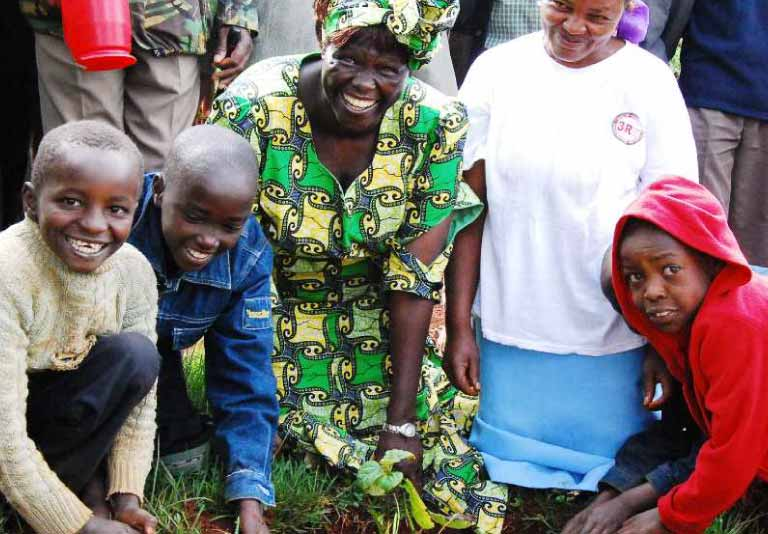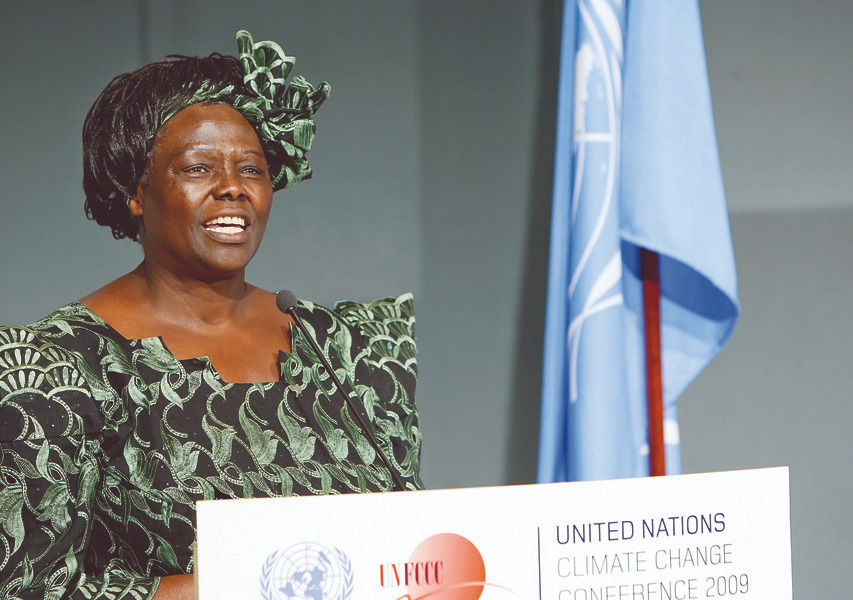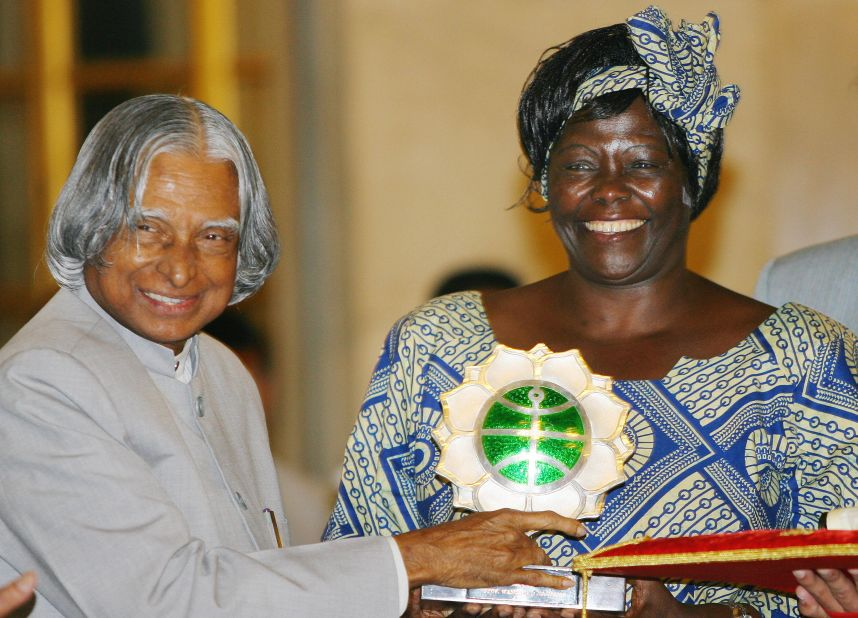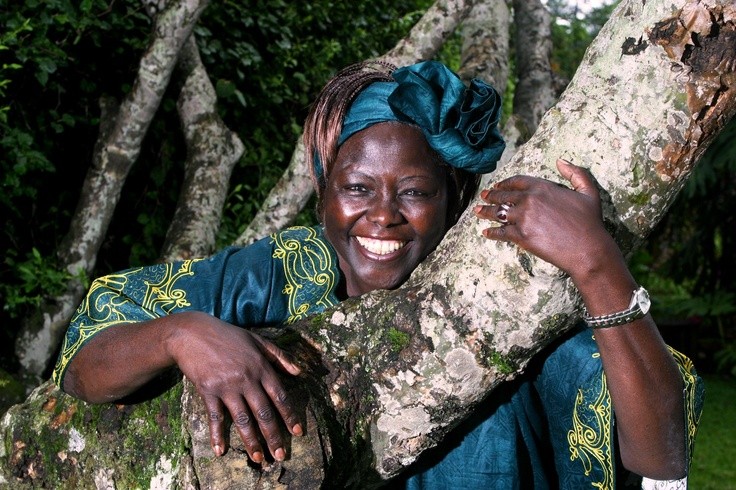Formidable with love of nature and environment, Wangari Maathai was the true definition of an environmentalist. She was the founder of the Green Belt Movement and the first African woman to receive the Nobel Peace Prize in 2004. Her activism extended beyond environmental concerns as she challenged oppressive regimes and advocated for human rights. A visionary Kenyan whose legacy still inspires, as in this tantalizing article we are going to dig deep into her illustrious journey.
Key Facts
Name: Wangari Muta Maathai
Birth Date: 1st April 1940
Birth Country: Nyeri, British Kenya (now Kenya)
Gender: Female
Best known for: Tree Conservation
Death Year: 25th September 2011
Death Country: Nairobi, Kenya
Her Remains: She was cremated, and her ashes were interred at the Wangari Maathai Institute for Peace and Environmental Studies in Nairobi, Kenya.
Early Life and Career of Wangari Maathai
Wangari Maathai, born in 1940 in Kenya, was an environmental and political activist, best known for founding the Green Belt Movement. She earned a biology degree from Mount St. Scholastica College in the United States and later, a master’s degree from the University of Pittsburgh.
Returning to Kenya, Maathai became the first woman in East and Central Africa to earn a doctorate, receiving her Ph.D. in veterinary anatomy. In 1977, she founded the Green Belt Movement, an environmental organization focused on tree planting, conservation, and women’s rights.
Maathai’s activism also extended to political spheres, challenging oppressive regimes in Kenya. She faced imprisonment and harassment but remained resilient. In 2004, she became the first African woman to receive the Nobel Peace Prize for her contributions in development, democracy, and peace.
Her legacy endures through the Green Belt Movement’s ongoing environmental initiatives and her impact on global environmental and women’s movements. Wangari Maathai passed away in 2011, leaving a lasting impact globally.

The Green Belt Movement
The Green Belt Movement (GBM), founded by Wangari Maathai in 1977, is an environmental organization based in Kenya. Its primary focus is on tree planting, conservation, and community development. The movement also encourages local communities to plant and care for trees, promoting environmental sustainability and empowering individuals.
Initially addressing deforestation and soil erosion, the GBM evolved into a broader initiative that links environmental conservation with social and economic issues. The movement emphasizes the crucial role of trees in maintaining ecological balance, providing resources, and supporting livelihoods.
Additionally, the GBM promotes women’s involvement in environmental activities, recognizing their central role in natural resource management. The movement’s approach intertwines environmental stewardship with the empowerment of women, as a result developing a holistic and sustainable model for community development.
Wangari Maathai’s leadership and the Green Belt Movement’s efforts have also garnered international recognition, enhancing discussions on conservation, climate change, and women’s rights on a global scale.

‘First African Woman’ Nobel Peace Prize Laureate
In 2004, Wangari Maathai made history as the ‘first African woman’ to be awarded the Nobel Peace Prize. Recognized for her extraordinary contributions to sustainable development, democracy, and peace, Maathai’s leadership in founding the Green Belt Movement and her resilience in promoting environmental conservation, women’s rights, and social justice stood out.
The Nobel Committee highlighted her ability to seamlessly relate ecological responsibility with human rights, making her a symbol of courage and inspiration globally. Maathai’s Nobel Peace Prize not only acknowledged her achievements but also spotlighted the crucial intersection of environmental stewardship and peacebuilding on the world stage. Also Read: Power of Diplomacy: Ellen Johnson Sirleaf’s Presidential and Nobel Peace Prize Journey
Other Achievements and Awards by Wangari Maathai
Wangari Maathai, a remarkable environmentalist and activist, achieved numerous accolades during her lifetime. Some of her notable achievements and awards include:
- Right Livelihood Award (1984): Also known as the “Alternative Nobel Prize,” Maathai received this award for her outstanding work in promoting ecology and social justice.
- Goldman Environmental Prize (1991): Maathai was honored with the Goldman Environmental Prize for Africa, recognizing her outstanding grassroots environmental activism.
- International Women’s Hall of Fame (1993): Wangari Maathai was inducted into the International Women’s Hall of Fame for her significant contributions to environmental and women’s rights causes.
- Jane Addams Leadership Award (2003): She received this award for her commitment to social justice and environmental causes.
- The Indira Gandhi Prize for Peace, Disarmament, and Development (2006): Awarded by the government of India, this prize acknowledged Maathai’s global impact on environmental conservation and peace.
- Legion of Honor (France, 2006): Wangari Maathai was also awarded the Legion of Honor, one of France’s highest distinctions, in acknowledgment of her efforts in environmental protection.
- Order of the Rising Sun, Gold, and Silver Star (2009): Finally, the Japanese government recognized Maathai for contributing to environmental conservation and sustainable development.

Bottom-line
All in all, Wangari Maathai’s legacy as an environmentalist, political activist, and Nobel laureate continues to inspire. Her dedication to environmental conservation and women’s rights leaves a lasting impact on the global community. May her commitment to sustainable development be a guiding light for future generations.



